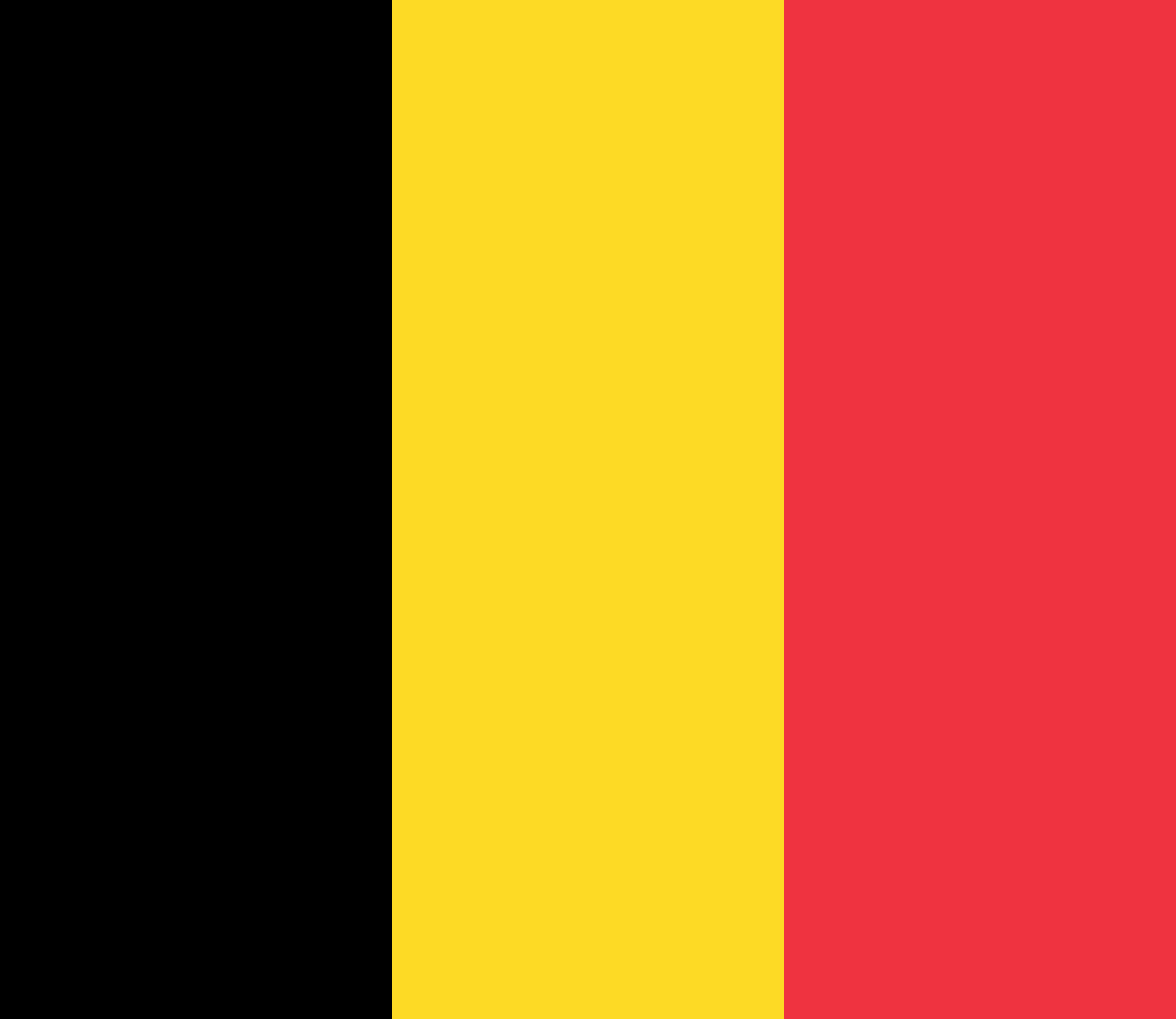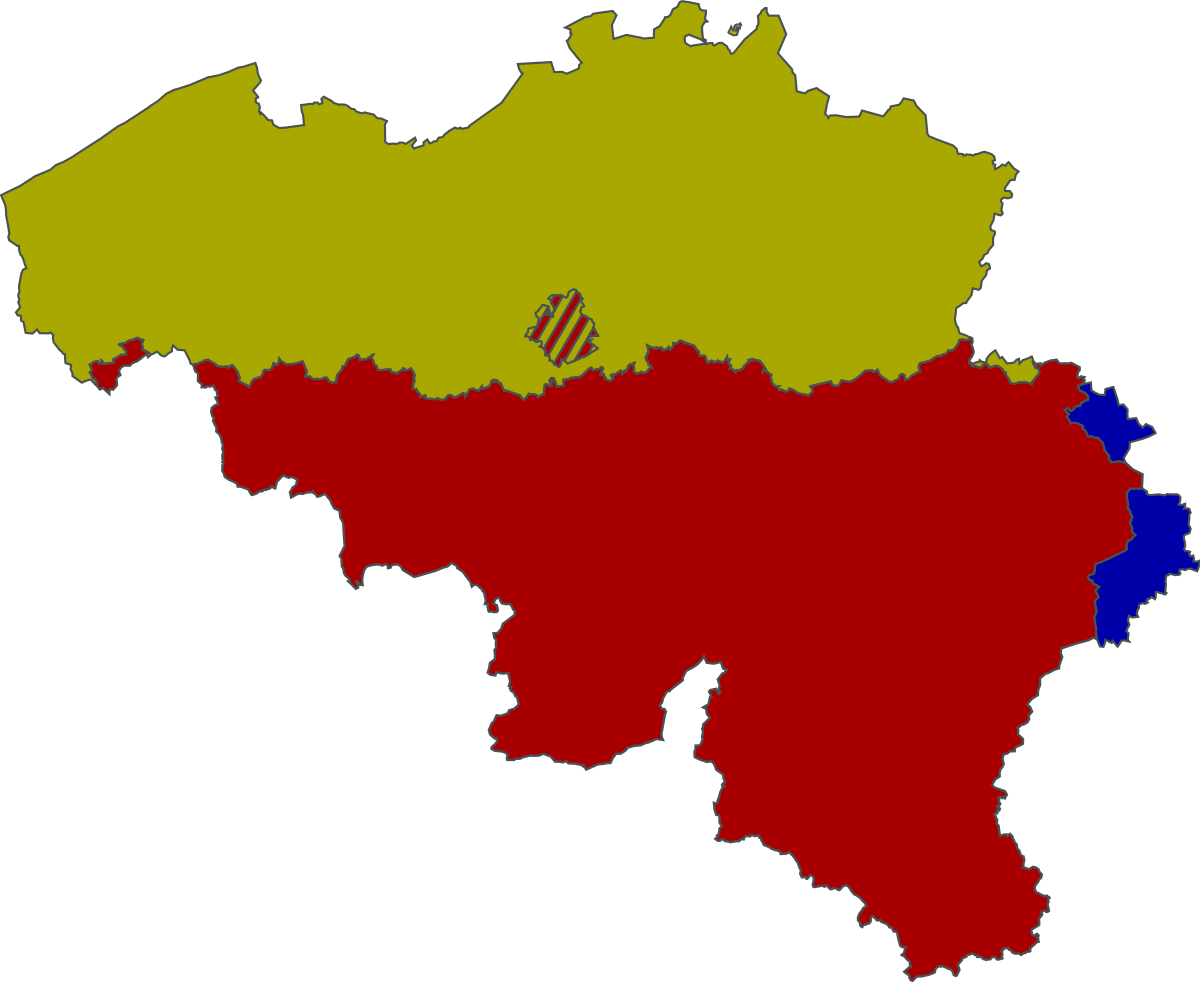Trilingual Belgium – What Language Do They Speak? Posted by John Bauer on Mar 23, 2016 in Culture

Drapeau de la Belgique (Belgian Flag)
De tous les peuples de la Gaule, les Belges sont les plus braves
Of all the people of Gaul, the Belgians are the bravest.
– Jules César (Julius Cesar)
After les attentats hier matin (the attacks yesterday morning), all our hearts are with la Belgique (Belgium). La capitale (the capital) is known as le Coeur de l’Europe (the heart of Europe), with many of the most important parts of l’Union européenne (the European Union) finding their home in Bruxelles (Brussels).
La Belgique is also an important part of la francophonie and contributes many of the most famous chanteurs (singers) like Jacques Brel and Stromae.
However, not all of le pays (the country) speaks French, and that can lead to some confusion as to what language you should speak en Belgique.
The country is split between les Flamands et les Wallons (the Flemish and the Walloons). Les Flamands speak Dutch and live in the Northern half of the country while les Wallons speak French and live in the Southern half. There is also a small part of la Belgique that speaks German!
En fait (in fact), le pays is officially trilingual and le français, le néerlandais et l’allemand (French, Dutch, and German) are all official languages!

Languages of Belgium by Vascer, Knorck — CC BY-SA 3.0.
Gold: Flemish Community (Dutch language) Red: French Community Blue: German-speaking Community
Pourquoi parle-t-on français en Belgique alors ?
Then why do they speak French in Belgium?
La Belgique entered written history in the year -57 with the Roman conquest of Gaul by Jules César. Les Romains (the Romans) divided Gaul into different provinces, including Gallia Belgica, an area in Northeastern Gaul populated by the Belgae, which is where la Belgique gets its name.
Les Romains brought their language and culture, which had a huge impact on the history of le pays, and led to une partie de la Belgique (a part of Belgium) speaking French today.
Mais les Flamands ne parlent pas français ?
But the the Flemish do not speak French?
After the fall of l’empire romain (the Roman Empire) la Belgique passed between many different kingdoms and empires falling under the influence of both their French neighbors in the West and their Germanic neighbors in the East.
It wasn’t until 1830 that la Belgique gained independence after passing under French and Dutch control a few more times. All that had a lasting impact and gave la Belgique the trilingual status that it has today.
En plus de cela (on top of that), Bruxelles is a French speaking city, but is located in the Dutch speaking part of le pays!
While there are often many fun things to say about les Belges (Belgians), they are an important part of la francophonie, l’Europe et le monde (the francophonie, Europe, and the world). Les attentats have everyone looking at la Belgique, and it’s a good moment to learn more about ce pays formidable (this wonderful country).

Build vocabulary, practice pronunciation, and more with Transparent Language Online. Available anytime, anywhere, on any device.




Comments:
Bonnie:
M. Bauer — The last sentence has a misspelling : Les atentats should be les attentats. I don’t want to be picky, but it’s spelled correctly earlier in your post and it might be confusing for some who read it as to which is correct.
Good job explaining the history of Belgium and the language distribution! Very interesting — I’m sure the information will make its way into the classes I teach!
Merci — Bonnie Christianson
Ray Mullins:
N’oubliez pas la quartième langue officieuse, qui a le même nom comme la province plus sud-est: Lëtzebuergesch!
John Bauer:
Bonsoir Bonnie ! Merci pour votre commentaire ! I just changed it. Don’t ever worry about being picky, it’s better to have it fixed!
I’m glad you enjoyed the post!